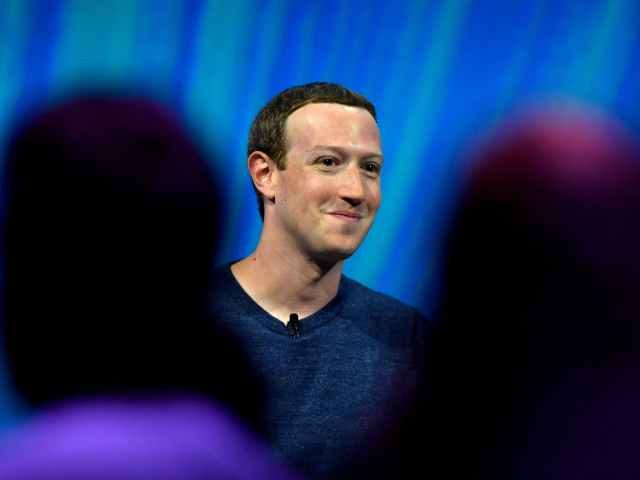In a recent op-ed in the Jeff Bezos-owned Washington Post, Facebook CEO Mark Zuckerberg outlines his plans for Internet regulation.
It appears that Facebook CEO Mark Zuckerberg is trying to get ahead of the game when it comes to Internet regulation, proposing his own plans for how such regulation should take place before federal officials publish their own suggestions. In an op-ed published in the Washington Post titled “Mark Zuckerberg: The Internet needs new rules. Let’s start in these four areas,” the billionaire CEO outlines how he believes online businesses should be governed.
Zuckerberg explains why he’s suddenly come around to the idea of regulation, stating that it’s important to keep the online “community safe,” and claims that the four areas that need to be focused on are: “harmful content, election integrity, privacy and data portability.” Zuckerberg writes: “I believe we need a more active role for governments and regulators. By updating the rules for the Internet, we can preserve what’s best about it — the freedom for people to express themselves and for entrepreneurs to build new things — while also protecting society from broader harms.”
Zuckerberg suggests that third-party bodies set rules for social networks relating to “harmful content,” and monitor the networks for violation of these rules. Of course, Facebook already tried this with its “trusted sources” program relating “fake news.” This program was not particularly successful for Facebook. Zuckerberg states:
First, harmful content. Facebook gives everyone a way to use their voice, and that creates real benefits — from sharing experiences to growing movements. As part of this, we have a responsibility to keep people safe on our services. That means deciding what counts as terrorist propaganda, hate speech and more. We continually review our policies with experts, but at our scale we’ll always make mistakes and decisions that people disagree with.
Lawmakers often tell me we have too much power over speech, and frankly I agree. I’ve come to believe that we shouldn’t make so many important decisions about speech on our own. So we’re creating an independent bodyso people can appeal our decisions. We’re also working with governments, including French officials, on ensuring the effectiveness of content review systems.
Internet companies should be accountable for enforcing standards on harmful content. It’s impossible to remove all harmful content from the Internet, but when people use dozens of different sharing services — all with their own policies and processes — we need a more standardized approach.
One idea is for third-party bodies to set standards governing the distribution of harmful content and to measure companies against those standards. Regulation could set baselines for what’s prohibited and require companies to build systems for keeping harmful content to a bare minimum.
Zuckerberg also calls for regulation and legislation relating to the verification of political actors when it comes to advertising. Currently, Facebook does this themselves via a postcard system:
Second, legislation is important for protecting elections. Facebook has already made significant changes around political ads: Advertisers in many countries must verify their identities before purchasing political ads. We built a searchable archive that shows who pays for ads, what other ads they ran and what audiences saw the ads. However, deciding whether an ad is political isn’t always straightforward. Our systems would be more effective if regulation created common standards for verifying political actors.
Online political advertising laws primarily focus on candidates and elections, rather than divisive political issues where we’ve seen more attempted interference. Some laws only apply during elections, although information campaigns are nonstop. And there are also important questions about how political campaigns use data and targeting. We believe legislation should be updated to reflect the reality of the threats and set standards for the whole industry.
Zuckerberg finally calls for a “common global framework” of privacy laws and regulations similar to the European Union’s GDPR rules
New privacy regulation in the United States and around the world should build on the protections GDPR provides. It should protect your right to choose how your information is used — while enabling companies to use information for safety purposes and to provide services. It shouldn’t require data to be stored locally, which would make it more vulnerable to unwarranted access. And it should establish a way to hold companies such as Facebook accountable by imposing sanctions when we make mistakes.
I also believe a common global framework — rather than regulation that varies significantly by country and state — will ensure that the Internet does not get fractured, entrepreneurs can build products that serve everyone, and everyone gets the same protections.
Read the full op-ed in the Washington Post here.
Lucas Nolan is a reporter for Breitbart News covering issues of free speech and online censorship. Follow him on Twitter @LucasNolan or email him at lnolan@breitbart.com

COMMENTS
Please let us know if you're having issues with commenting.